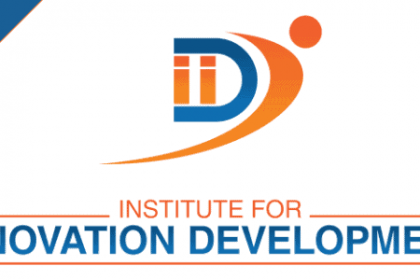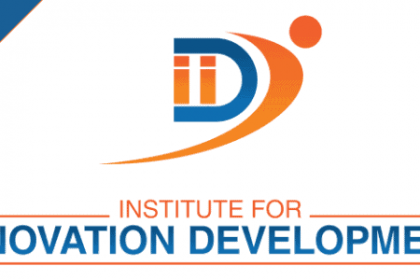The legal profession is about to experience a huge shift. Technology is changing everything, and AI is leading the charge. As a lawyer, you have probably heard about it, maybe even experimented with it.
But in 2025, it is not just a buzzword anymore—it is going to be part of the fabric of how we practice law. I am sure you are wondering: will AI make our lives easier, or is it just going to make everything more complicated?
It is a valid question. But here’s the thing: if you start integrating new technology now, you’ll have a huge advantage. Personal injury lawyers at Walton Law A.P.C. are already ahead of the curve, using the latest tools and technologies to offer faster, more accurate services to their clients.
How AI is changing legal work
So, let’s talk about AI in practical terms. What exactly is it going to change? Well, for starters, tasks that once took hours of manual work—like reviewing documents, conducting legal research, and drafting contracts—are going to get a lot faster.
In fact, tools like Relativity for e-discovery and Harvey for contract analysis are already cutting down the time it takes to do these tasks from hours or even days to mere minutes. And this is just the beginning.
Just think – you’re working in a personal injury law firm. You have a mountain of medical records and police reports to sift through for each case. Now, AI can help you scan through all that paperwork in a fraction of the time. No more wasting hours reading through pages of documents. AI can flag the important stuff for you. This isn’t science fiction—it’s happening right now. And it’s going to change the way you practice law forever.
Billing changes: Are hourly rates a thing of the past?
Here’s another big change coming your way: billing. As AI takes over more of the repetitive tasks, the traditional way of billing by the hour is going to start looking outdated. Instead, we’re going to see a shift toward flat fees or performance-based pricing. Why? Because AI makes everything more efficient, you’re spending less time on each task.
For personal injury law firms, this could be huge. For example, let’s say you’ve got a personal injury case that involves a lot of document review. Instead of billing your client for every hour you spend, you might just charge a flat fee for that service, knowing AI will speed up the process.
Smaller firms are going to benefit from this too. By adopting AI early, smaller personal injury law firms can offer lower rates without compromising the quality of service. Think about it: you can now compete with larger firms that have more resources, simply by being smarter with technology.
AI as the new junior associate
Now, here’s where things get a little tricky. With AI handling more of the low-level tasks, there’s less of a need for junior associates to do this kind of work. Traditionally, junior associates have spent a lot of time doing document review, basic research, and drafting. But with AI tools like ChatGPT and ROSS Intelligence, much of this work can be done in minutes, leaving junior associates to focus on more complex tasks.
But it is not all bad news. Yes, the entry-level legal job market might become a little tougher to break into – but the good news is that junior associates will now get to focus on higher-level work much sooner.
If you are a junior associate today – learning how to use AI tools will give you a huge advantage over your peers who are still stuck doing mundane tasks. In fact, some law schools, like – Stanford and Duke, are already offering courses to help future lawyers get up to speed with AI.
Small law firms getting a competitive edge
If you are working at a smaller personal injury law firm – you might be feeling a little nervous about how AI will affect you. Larger firms typically have more money to throw at new technology – so they can buy the fancy AI tools. But AI is making it easier for smaller firms to level the playing field.
Tools like Ironclad and Lawgeex are helping smaller firms automate processes like contract review and legal research. These tools were once only available to big law firms with deep pockets – but now they are accessible to firms of all sizes.This is great news for personal injury law firms – that often have fewer resources than big corporate firms.
The lawyer’s new role: More than just automation
So, where does this leave you as a lawyer?
Well, AI is certainly going to take over the grunt work – but it is not going to replace you. What AI cannot do is provide the human touch. Clients still need someone to – explain the law, guide them through their cases, and provide that personal connection that only a lawyer can offer.
In fact, your role as a lawyer will become even more valuable in this AI-driven world. You will be the one to make the big decisions – strategize for your clients – and build those important relationships.
Personal injury lawyers, in particular – will always be needed to advocate for clients. AI is just another tool that makes that work more efficiently.
Predictive AI: The crystal ball for lawyers
One of the coolest developments in AI is predictive technology. It is like having a crystal ball for your cases. Tools like Blue J Legal and Pitchbook are already using predictive AI to forecast things like – case outcomes, investment returns, and company valuations.
For personal injury law firms – predictive AI could help estimate the chances of winning a case based on historical data and case trends. Just think for a second – being able to tell your client, “Based on the data from similar cases, you have an 80% chance of success.” It is possible with AI. This is particularly helpful in personal injury cases – where the stakes are high.
Ethics, privacy, and AI – Dealing with the challenges
Of course, all this technology brings up some important questions about ethics and privacy. As lawyers, we have a responsibility to protect client information, and AI can’t do that for us. You will still need to make sure that your firm complies with all privacy regulations and ethical standards.
The good news is that governments are already working on creating guidelines to guarantee AI is used responsibly. For example, the EU’s AI Act, which came into effect in 2024 – focuses on ensuring that AI is used ethically and safely in industries like law.
Final thoughts
AI is going to change the way we work, no doubt about it. But if you start using it now – you will have a big leg up in the future. For personal injury law firms – AI will make your practice more efficient, cost-effective, and accurate. It will not replace the human element that makes your work unique – but it will make your job easier.








